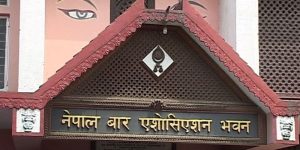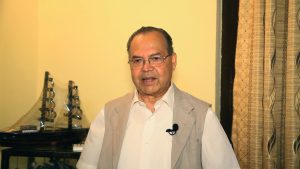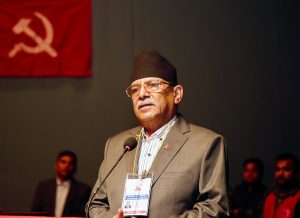Nepal Communist Party (Maoist Centre) Secretary Ram Karki has voiced a different view on leadership and revolution within the party, saying it is not necessary to hold an official position to lead a revolutionary movement.
Pointing to repeated remarks by party chair Pushpa Kamal Dahal Prachanda, who has often said he still wishes to “lead another revolution,” Karki made it clear that revolutionary leadership does not depend on occupying a post. “Anyone with experience, vision, and ideas can lead. For that, it is not necessary to remain in an official position,” he said.
Call for Youth Leadership and Party Renewal
Karki said the party’s leadership structure should now be handed over to the younger generation. Political continuity and innovation, he argued, can only be ensured if individuals with fresh ideas, energy, and vision take organizational responsibility. Senior leaders, he suggested, should instead focus on ideological and political guidance.
He added that, like individuals, political parties and state power also have a certain lifespan and limitations. For that reason, he stressed, regular self-reflection and restructuring are essential. “If a party does not embrace continuous renewal and partial dissolution, reorganization is not possible,” Karki said, recalling revolutionary lessons rooted in Maoist ideology.
Workers, Farmers, and the Future of Politics
Karki criticized leftist parties for failing to bring meaningful legislation or structural reforms in favor of workers and farmers, despite being in power for many years. He pointed out that key sectors such as education and healthcare remain unchanged, saying genuine transformation requires deeper review and commitment.
According to him, the central force of future politics and governance should be workers and farmers. He argued that feudal and capitalist forces can no longer drive society forward. Instead, he emphasized that politics led by laborers and peasants, alongside the younger generation, represents the real necessity of the present time.






